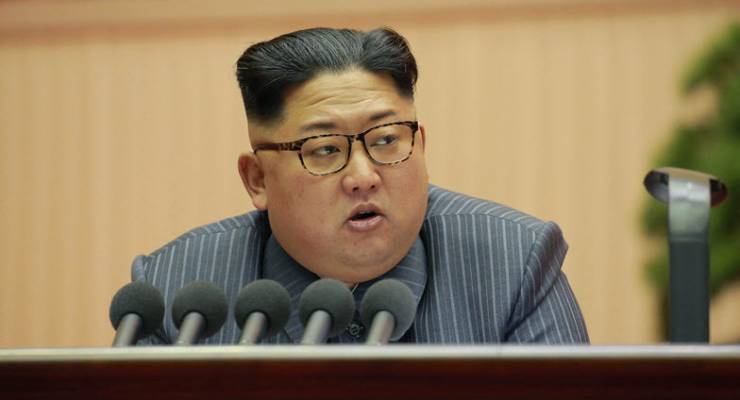
Talks today between representatives of North and South Korea are expected to begin a de-escalation of tensions that had, over recent months, brought North Korea alarmingly close to nuclear war. The tensions arose as a result of North Korea’s nuclear weapons program and long-range missile-testing, which present a major threat to a number of aligned countries, including South Korea, Japan, the United States and, potentially, Australia.
The talks came about after North Korea’s President Kim Jong-un announced on New Year’s Eve that his country would be prepared to open a dialogue with its southern neighbor over the possibility of participating in next month’s Winter Olympics at Pyeongchang in South Korea. This, in turn, following South Korea’s President Moon Jae-in saying in November that he hoped that North Korea could participate in the games.
Delegates from each country will meet today to discuss North Korea’s participation in the games, while South Korea also wants to put family reunification back on the agenda between the two countries. Many Korean families were cut off by the Korean War and the opportunity for brief meetings between members of separated families is seen as a gesture of goodwill.
[Rundle: US and North Korea are more dangerous than fiction]
The talks about participation in the games are relatively low risk and will be used by both sides as a confidence-building measure after a serious deterioration in relations between the two countries. South Korea has also proposed suspending planned war games with the United States, which North Korea sees as a threat to its security.
If the talks about North Korea’s participation in the Winter Olympics are successful, it could pave the way for a further meeting, or meetings, aimed at trying to further normalise relations between the two countries. North Korea may now feel it is able to engage in such a process as it has established a position of relative strategic strength.
North Korea has argued that the development of its nuclear-armed intercontinental missile program is intended to ensure the country’s security in the face of what it characterised as US belligerence. The longer term breakdown in relations between North and South Korea began in 1993 when North Korea began its missile-testing program as part of a deal with Iran to exchange missiles for oil.
Relations between North Korea and particularly the United States reached a new low last year as US President Donald Trump ramped up his rhetoric on North Korea and notably towards “little rocket man” President Kim Jong-un. This was matched by an increased tempo in war-gaming in anticipation of a possible strike on North Korea.
[How to assuage North Korea and avoid total war]
North Korea responded by accelerating the pace of its intercontinental missile development, with its Hwasong-15 missile demonstrating recently a potential capacity to strike mainland United States. The UN Security Council responded to the missile tests by increasing sanctions against North Korea on three occasions in 2017. The question of sanctions are likely to be central to any further rounds of talks between North and South Korea.
While the talks are a positive sign of the easing of tensions, they will remain delicate. Discussion of North Korea’s nuclear disarmament is, for the foreseeable future, likely to be a deal-breaker. The most successful outcome of today’s talks will simply be if a further round of talks is scheduled.
If further talks can be scheduled, the US will need to move towards engaging as a positive contributor to the process, rather than as North Korea’s key threat. On this, the US is likely to have its own conditions, which may be more demanding than those of North Korea’s estranged southern sibling.








North and South Korea should be talking…..hard!
Trump should shut his f***ing mouth.
Such a shame that the telex from Langley VA is still functional.
One thinks reunification is the only long term hope, but how you could ever do that with the Kim dynasty is hard to imagine. The Iran link is interesting. Another example of failed US middle-east policy coming home to roost?